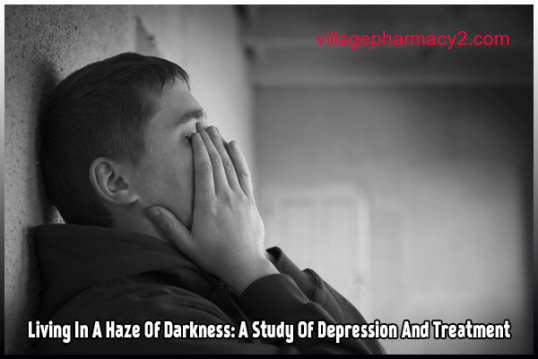Common Stereotypes and Facts About Depression
In today’s article, we are going to be discussing depression. Depression is something everyone has thought of or heard of before and has been increasing steadily in diagnoses in recent years. You or someone you know has probably wondered at one point in your life whether you have depression yourself or not, that would make sense if you’ve chosen to seek out this article.
Don’t be afraid to seek help
I want you to know that I am not a doctor and if you feel you or someone you know are suffering from a severe sense of depression to seek help. There are many options available to provide assistance such as the suicide hotline or your primary care physician. These people will care for you and show you that there is light at the end of that tunnel.
What is depression
So back to basics, what IS depression and how do you know for sure that what you’re feeling qualifies? Well, by definition, in order to be diagnosed with major depressive disorder the negative symptoms associated with depression must occur for a minimum of two consecutive weeks. The symptoms are varied but common and include feelings of prolonged sadness and a loss of interest in things that you used to enjoy. If you are having trouble sleeping or sleeping too much this could be another sign of abnormal depressive behavior as well. And if you are experiencing suicidal thoughts or persistent thoughts about death please see your doctor immediately.
Who does it affect
Depression is considered a common condition and according to the recent research by viagrastoresa.com affects roughly one in 15 adults. That equates to about 6.7% of all adults, and it is said that up to one in six people or 16.6% of people will experience depression at some point in their life. This average is even higher in women, with some studies showing that up to 33.3% of all women will suffer a major depressive episode at some point in their life as well.
Loss and depression
Don’t be confused, there is a huge difference between being sad or grieving the loss of a loved one than being depressed. It is perfectly natural to experience these feelings at times in your life and does not mean you are having a period of major depressive disorder. That being said, a major loss can lead to depression so it is good to be able to tell the difference between the two in order to make sure you get the help you need as soon as possible.
Finding a primary care physician
If you have discovered or strongly feel that you may be depressed it is time to go to your primary care physician for help. Depression is treatable and up to 90% of will respond positively to some form of prescribed treatment for the disorder, and nearly all patients will find some form of relief. It is important that when you see your doctor that you are open and honest about your condition and symptoms. A diagnostic test will need to be performed to determine if what you are feeling can be considered a true case of depression. You may be required to answer some questions, both verbal and written, as well as undergo a physical examination so be ready.
Treatment
If you have been diagnosed you will likely need treatment. And the first form of treatment most doctors are going to jump for is medication. In many cases, depression can be attributed to a chemical imbalance within your brain, and that is what anti-depressants are primarily designed to help restore balance. There are many different types of anti-depressants out there, and in many different doses, so finding the right one for you may take some time.
Medication
These medications take time to work as well. You may notice some improvement shortly after you begin a new prescription but this may just be a placebo effect. Generally speaking, it can take anywhere from 3 to 4 weeks in order to see significant improvement with your symptoms. This is due to the subtle way antidepressants work to stabilize the chemical imbalances you may have over time. If, however, you do not feel like you are noticing improvement after a 4 week period you may be asked to come back to your doctor’s office to try a different medication. Find the treatment that is right for you, and if you feel you are suffering from the symptoms mentioned today see your primary care physician ASAP.

